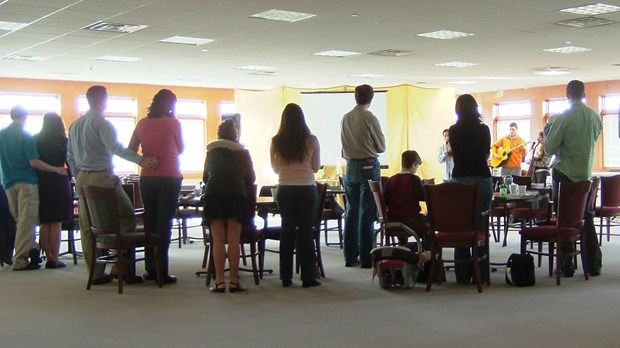
The body of Christ is made up of many parts.
Various denominations, liturgies, styles, and sizes.
And nowhere is that variety more evident, more delightful or (let’s be honest) more frustrating than in the amazing menagerie of small churches.
Big churches matter. Medium-size churches matter. Small churches matter. But, since small churches often get fewer resources and attention than our large church counterparts, it’s important to be reminded why small churches are just as vital to the body of Christ as big churches are.
Here are 7 reasons:
1. Small churches are the most common expression of the gathered body of Christ
Up to 90 percent of all churches are under 200, 80 percent under 100. That’s a lot of small.
Fully half the Christians in the world attend small churches. And, in the places where Christianity is increasing as a percentage of the population, you’re more likely to see the multiplication of small churches than an increase in the size of large churches.
2. Small churches are the most widely spread
There are a lot of places in the world where big churches just don’t work. Like in places of extreme poverty and persecution, or regions where the gospel message is new. Plus, there are cultures where small and subtle sends a better message than big and noticeable.
Small churches fit everywhere and work everywhere, so they exist everywhere.
3. Small churches are the most duplicable
Starting or growing a big church is extremely hard. Starting and sustaining a healthy small church is much, much easier. Not easy. But not as hard as big churches.
4. Small churches are the most leadable
Imagine the differences between one church of 1,000 and 20 churches averaging 50.
There are 1,000 believers in each situation, but the church of 1,000 only has the capacity for one lead pastor and a few staff pastors. And those leaders need advanced levels of training and/or experience.
The 20 churches averaging 50 will have as many as 20 lead pastors, many of whom don’t have much (or any) formal training, but who are called, gifted and capable to serve as the lead pastor of 50 or so people.
5. Small churches are the most affordable
Big churches cost big money. Sometimes, the per capita cost of a healthy big church is less than the per capita cost of a small church – but only when the small church is unhealthy.
Healthy small churches can and do function on surprisingly little money.
6. Small churches are the most portable
Big churches take up a lot of space. And moving them is a massive undertaking. But healthy small churches can fit anywhere. And they can move quite easily.
7. Small churches are the most resilient
When there’s a failure of leadership in a big church, the fallout is huge and the recovery time is long – if it happens at all. But small churches have an amazing capacity to bounce back over and over again.
And even when they do fail, a new one often pops up in its place in a short period of time.
What Small Churches Are Not
Did you notice anything missing in that list? Certainly there are good ideas that I forgot. No list like this will ever be exhaustive. But there are a handful of characteristics that I specifically chose not to include, even though small churches are often stereotyped in these ways.
Small churches are not necessarily:
- Friendlier
- More faithful
- Better at pastoral care
- More prayerful
- More doctrinally sound
- or more missional than big churches
There are churches of all sizes, styles and theological backgrounds that are equally good at all those qualities.
We can and must appreciate what each church does well, without creating any sense that one size of congregation is better than another size of congregation.
Any group of people who love Jesus, love each other and share their faith is a healthy church.
Different types and sizes of congregations do that in different ways.
And every one of them matters.
Copyright © 2019 by the author or Christianity Today.
Click here to read our guidelines concerning reprint permissions.
Pivot is a part of CT's
Blog Forum. Support the work of CT.
Subscribe and get one year free.
The views of the blogger do not necessarily reflect those of Christianity Today.
Join in the conversation about this post on Facebook.
- A Discipleship Strategy Small Churches Can Actually Follow, with Darrell Stetler (Ep 38)Darrell and Karl talk about the importance of discipleship in the life of the church – and as a central role in our calling as pastors.
- Why Proximity and Longevity Matter in Pastoral Ministry, with Alan Briggs (Ep 36)Karl interviews Alan Briggs, a pastor, the author of Staying is the New Going, the host of the Right Side Up Leadership podcast and StayForth.com.
- Seculosity: Ministry In The Era Of Secular Religion, with David Zahl (Ep 37)Karl Vaters interviews David Zahl, author of Seculosity: How Career, Parenting, Technology, Food, Politics, and Romance Became Our New Religion and What to Do about It.
- Should You Start a Podcast? And Positive Ministry Trends, with Aron Utecht (Ep 35)Karl Vaters interviews Aron Utecht, a pastor and the host of the Good Ideas for Churches podcast















